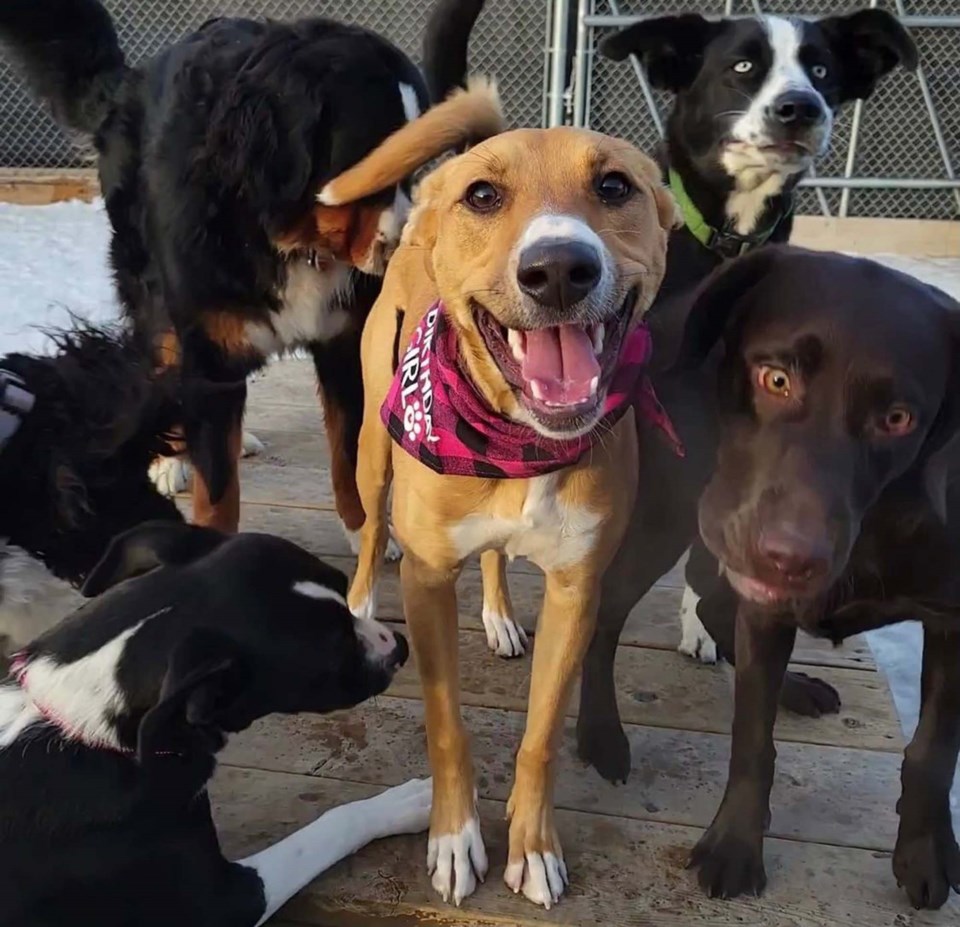Eveline Scouten, a daycare attendant at K9 Awareness in St. Albert, said she has heard of kennel cough in dogs, but never COVID-19.
“We haven't heard about this at all. Haven't noticed any strange symptoms. Haven't seen any sickness. Honestly, we haven't seen anything abnormal,” she said.
Should owners be worried about their pets getting COVID-19?
Dr. Daren Mandrusiak, an exotic animal veterinarian from Edmonton's Harvest Pointe Animal Hospital, said they sometimes get questions from pet owners about COVID in his practice, and there are certain pets that can get COVID-19 in certain situations.
“[You] should probably take precautions, if you're really sick, not to have very close interactions with pets that could be more susceptible — like ferrets,” he said
Mandrusiak said ferrets and mink, both of which are members of the weasel family, have very similar physiology to humans, and it hasn't been a big surprise for vets to learn that these animals are likely quite susceptible to the virus.
“[Ferrets are] actually used in certain situations in science as an experimental model for human respiratory disease,” he said.
A Government of Canada website states there are many cases in many countries of farmed mink, which are quite similar to ferrets, getting COVID-19. Reports from the Netherlands and Denmark suggest that mink may have infected some workers.
Mandrusiak said these mink cases have a very good model for an outbreak, because there are thousands of minks in a smaller space, such as a barn.
“In that case, you can have an outbreak and you can have virus mutation and all that kind of stuff … there was a risk for mutation just based on sheer number,” he said.
There are protocols at Mandrusiak’s clinic for ferrets with respiratory disease because there is a small amount of risk to the vets, but according to a report by the World Organisation for Animal Health, there has not been a single report of pets spreading COVID-19 to people.
Most people, however, don’t have ferrets.
The Government of Canada website states companion animals such as dogs, cats, and rodents — including hamsters — are all capable of getting the virus, whereas pets such as birds and lizards are not.
“In the class of mammals, things are going to be more similar, purely based on the fact that we have similar body temperatures.
“Generally speaking, a lot of these types of diseases don't like to spread to animals that have significantly different body temperatures and reptiles being cold-blooded … our viruses and diseases don't really like to jump to them because they kind of just freeze out,” said Mandrusiak.
As for our furry mammal friends, Mandrusiak said it’s a bit tricky in terms of having data on COVID and pets.
So far, data from the federal government's website states dogs can get COVID, but they cannot spread it to other dogs.
Cats are more susceptible to the virus than dogs, and they can also spread it to other cats.
“We don't have any, as far as I’m aware, major outbreaks of cat COVID-19 because you have three cats, and it goes through them, but it doesn't get outside of your house because your cats don't hang out at school or something,” said Mandrusiak.
The Government of Canada website recommends people who have COVID-19 avoid contact with their pets. If this isn't possible, they recommend wearing a mask when around them and keeping them isolated as well.
There are no tests for COVID-19 in pets and if there were a case it would be diagnosed based on presumption.
If a pet owner has COVID and their pet starts to develop respiratory disease, there’s a chance it could be COVID and the owner should call their vet, said Mandrusiak.
As for treatment, it is very much the same as the treatment for humans.
“We don't have a special veterinary treatment. It's just going to be rest, maybe some anti-inflammatory, quarantine … it's not going to be anything fantastic,” he said.
Mandrusiak said he has not had even a presumptive COVID case come up in his practice, and his wife, who is also a vet but works with cats and dogs, hasn’t run into any cases either.
“That just goes to show how uncommon even just an infection is.”




